Giving birth in the Netherlands as an international comes with a whole new set of (linguistic) challenges. From healthcare and pregnancy to preparing for a baby — there’s a whole world of Dutch vocabulary you should know about. 🍼
Even if you’ve mastered some Dutch, your vocabulary might not span the breadth and width of healthcare and baby-related terms you’ll need.
To make this experience a bit easier, we’ve assembled all the vocabulary to help you and your newborn take the Netherlands by storm. 🇳🇱
People and healthcare professionals
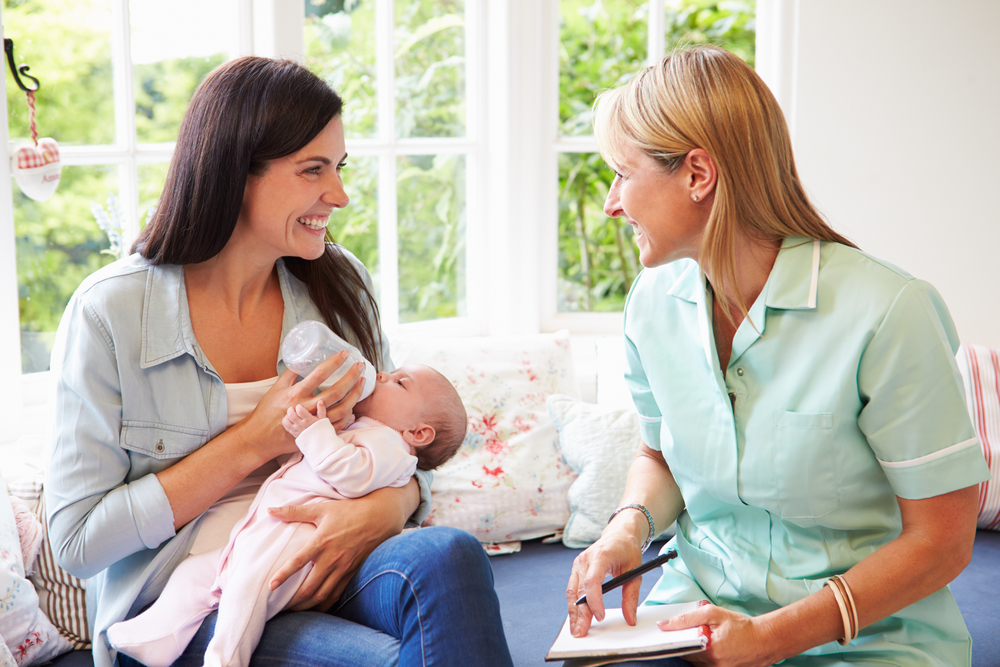
Just found out you’re expecting? First off, congrats! And secondly, you might want to know that you don’t call your Dutch huisarts (General Practitioner) first thing. Instead, you call the verloskundige (midwife). This will officially start the process of your pregnancy care.
Skipping forward a couple of months, you should know that after giving birth you have three days to officially register your baby with your gemeente (municipality).
Here are some other important Dutch words for people and healthcare professionals that will help you throughout your pregnancy in the Netherlands:
- Newborn — pasgeboren
- General Practitioner — huisarts
- Nurse — verpleegster
- Maternity nurse — kraamverzorgster
- Municipality — gemeente
Pregnancy in the Netherlands
Pregnancy is considered a natural process by the Dutch that shouldn’t be overly medicalized. For example, the Netherlands gives you a choice of where you want to give birth. Your options are between the hospital, at a birthing centre or delivering your baby at home — making it one of the few Western countries that permits this practice!
READ MORE | 8 things you need to know about giving birth in the Netherlands
You will also receive a home visit from the consultatiebureau (child care clinic) a few days after giving birth. After you’ve recuperated enough, you can bring your baby there for regular check-ups.
Here are some more words you might encounter when discussing your pregnancy with healthcare professionals:
- Pregnant — zwanger
- Pregnancy — zwangerschap
- childbirth — bevalling
- to give birth — bevallen
- Birth date — geboortedatum
- Birth certificate — geboortecertificaat
- Care Clinic (Pediatrician) — consultatiebureau
Welcoming your baby
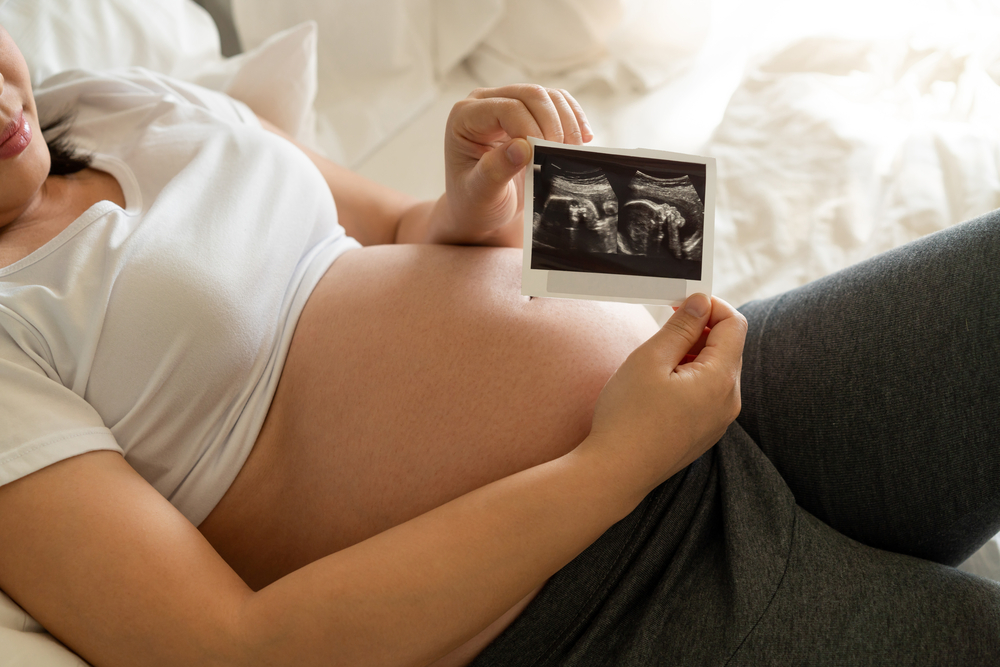
About six weeks prior to your due date, it is advised that you have a kraampakket (maternity package) in your home. A kraampakket is essentially a basket filled with things you might need after giving birth: bandages, maternity pads, disinfectants, healing creams and so forth.
You can buy them online from known brands such as Natalis or Heltiq. Another option is to check out your local baby-supply store. When you are close to your due date, you may need items to protect your bed in case your water breaks — things like a mattress protector and pads that are found in this helpful box.
After birth, you will receive kraamzorg (maternity care) in your home with the assistance of a maternity nurse. Every woman who gives birth in the Netherlands is entitled to this help. You and the nurse will need items from the kraampakket that help you with the healing process. See below for more items found in this package.
These are some of the items you’ll find in your kraampakket:
- Matress protector — matrasbeschermer
- Underlay — onderlegger
- Kraammatras — maternity mattress
- Umbilical Cord Clamp — navelstrengklem
- Maternity Pads — kraamverband
- Nursing/Breast Pads — zoogkompres
- Bandage Pads — verbandwatten
Maternity stores
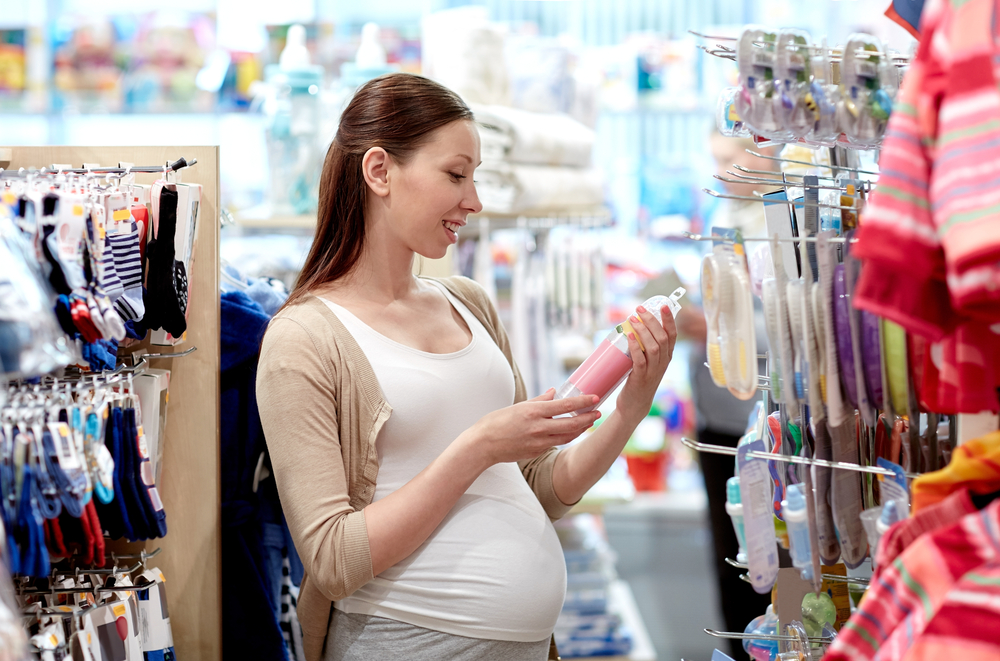
There are many boutiques and shops for baby items in the Netherlands. Some of the largest chains with multiple locations throughout the country are Baby Park, Prenatal, Baby-Dump and Baby Planet. Additionally, you can find a small selection of baby essentials such as formula, wipes or diapers at your local drogisterij (drugstore) such as Etos or Kruidvat.
Good to know: Many of these larger stores are closed on Sundays. Prenatal has locations where the designated first or last Sunday of each month is open. Baby-Dump, on the other hand, is always closed on Sundays including the online store.
Breast feeding
When it comes to feeding your baby it is best to visit a baby store for products such as breast pumps or bottles. If you’re ever in need and the baby store is closed, don’t fret. Grocery stores such as Jumbo and Albert Heijn have sections with baby essentials like diapers, baby food and formula.
These are all the Dutch words you’ll need when feeding your baby:
- Nursing Bra — voedingsbeha
- Breast pump — borstkolf
- Breastfeeding — borstvoeding
- Baby formula — opvolgmelk
- Baby bottle — babyfles
- Bottle warmer — flesverwarmer
- Sterilizer — sterilisator
- Baby food — babyvoeding
- High chair — kinderstoel
- Teethers — bijtringen
Putting your baby to sleep
The Dutch way might be different from your own culture when it comes to baby sleep. For example, the kruik is a hot water bottle used to warm the bed of the baby since it can’t regulate its own body temperature yet.
READ MORE | 9 things to expect as an expat mother in the Netherlands
Sound scary? You can buy a fabric cover for it and normally it is placed within the blankets at the foot of the crib or taken out before the baby is taken to bed.
Here are some Dutch words that’ll come in handy when putting your baby to sleep:
- Baby monitor — babyfoon
- Hot water bottle — kruiken
- Humidfier — luchtbevochtiger
- Wieglaken — crib sheets
- Swaddle — inbakeren
- Baby lounger — babynestje
Toys and play
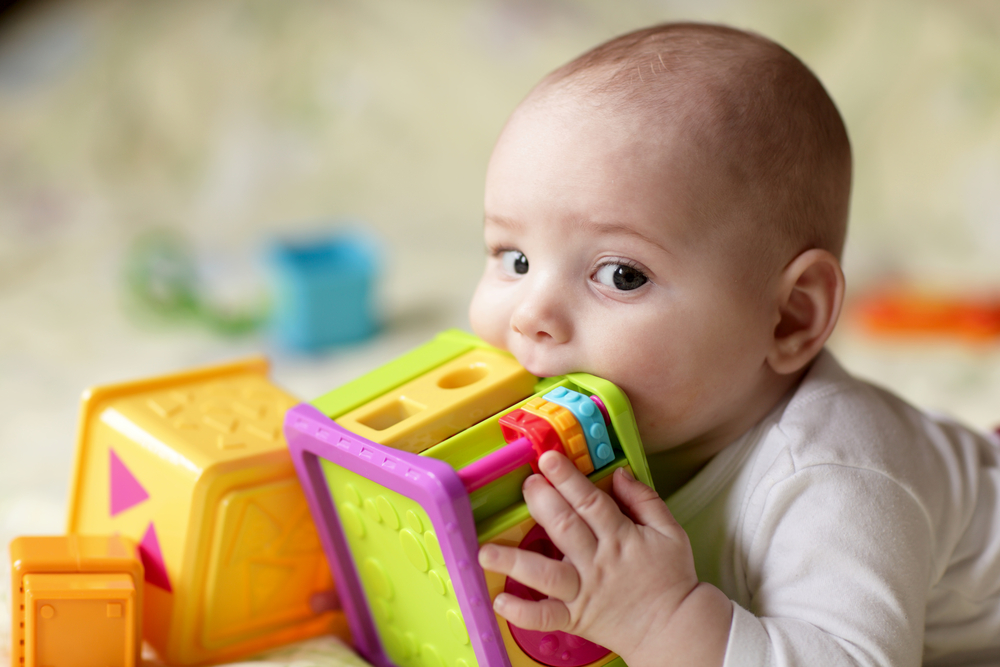
After a couple of months, your baby will want to do more than sleep, cry and eat. Or at least we hope so!
When looking for toys, you may notice the popular Dutch character Nintje (also known as Miffy) on shelves everywhere. Or you’ll find that brands such as Little Dutch make beautifully crafted, pastel toys. Regardless of what you choose, it’ll be important to have speelgoed (toys) for your little one around to discover the world in a playful way.
Here are some Dutch words for toys you might want to buy for your newborn:
- Teething toys — bijtspeeltjes
- Rattle — rammelaar
- Music box — muziekdoos
- Hanging toy — hangspeeltje
- Stuffed animal — knuffel
- Activity mirror — activiteitenspiegel
- Play box (play pen) — speelbox
- Play mat — speelmat/speelkleed
- Bouncer — wipstoel
- Walker/Walking chair — loopstoelen
- Ball — bal
Furniture
Where to find baby furniture? Popular stores such as Ikea or Baby-Park have a large selection of furniture from cribs to changing tables. If second-hand (tweedehands) is more up your alley, you can always try searching listings from people on Maarkplaats or visit your local Kringloop — a popular Dutch thrift store chain.
These are some words to make your Dutch home baby-prood:
- Nursery — kinderkamer/babykaamer
- Crib — ledikant/wieg/kinderbedje
- Rocking chair — schommelstoelen
- Night light — nachtlamp
- Stair gate — traphekken
Clothing and accessories
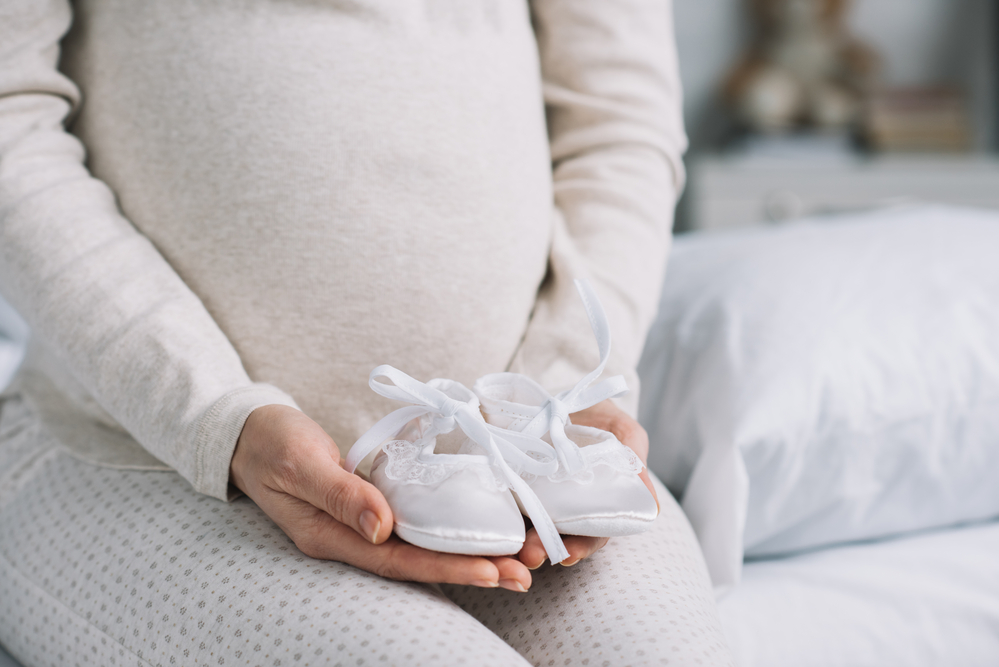
Pregnancy means that it’s not only your body that is changing but there is also a whole other human you’ll have to dress and keep warm. Especially in this cold, rainy Dutch weather!
Dutch words to dress yourself and your kid:
- Maternity Clothes — zwangerschapskleding
- Multi-piece set — meerdelige set
- Playsuit/Onesie — boxpakje
- Bodysuit — romper
- Diaper pants — luierbroekje
- Beanie — mutsje
- Socks — sokken
Transportation
If you’re new in the Netherlands, the bike culture might be fascinating. Babies and small children are often cycled to kindergarten or primary school in a bakfiets (cargo bike). Perhaps you’re from a warmer climate and unfamiliar with having a voetenzak (footmuff ) for your stroller, a type of ‘sleeping bag’ for chilly temperatures to keep your baby all cozied up on long walks.
Dutch words to help get your baby from A to B:
- Pram — kinderwagen
- Stroller (older child) — buggy
- Rain cover — regenscherm/regenhoe
- Maximum carrying weight — maximaal draaggewicht
- Car Seat — autostoel
- Foot muff/bunting bag — voetenzak
- (Baby) Belly Carrier — buikdrager
- Cargo Bike — bakfiets
There you have it — you’re ready to prepare your babykamer (baby chamber) for the arrival of your very own bundle of joy. While there is so much to learn, we hope this makes a part of your journey as a soon-to-be mother in the Netherlands just a little less stressful!
Any tips for mothers-to-be from seasoned moeders in the Netherlands? Share your experience in the comments!



